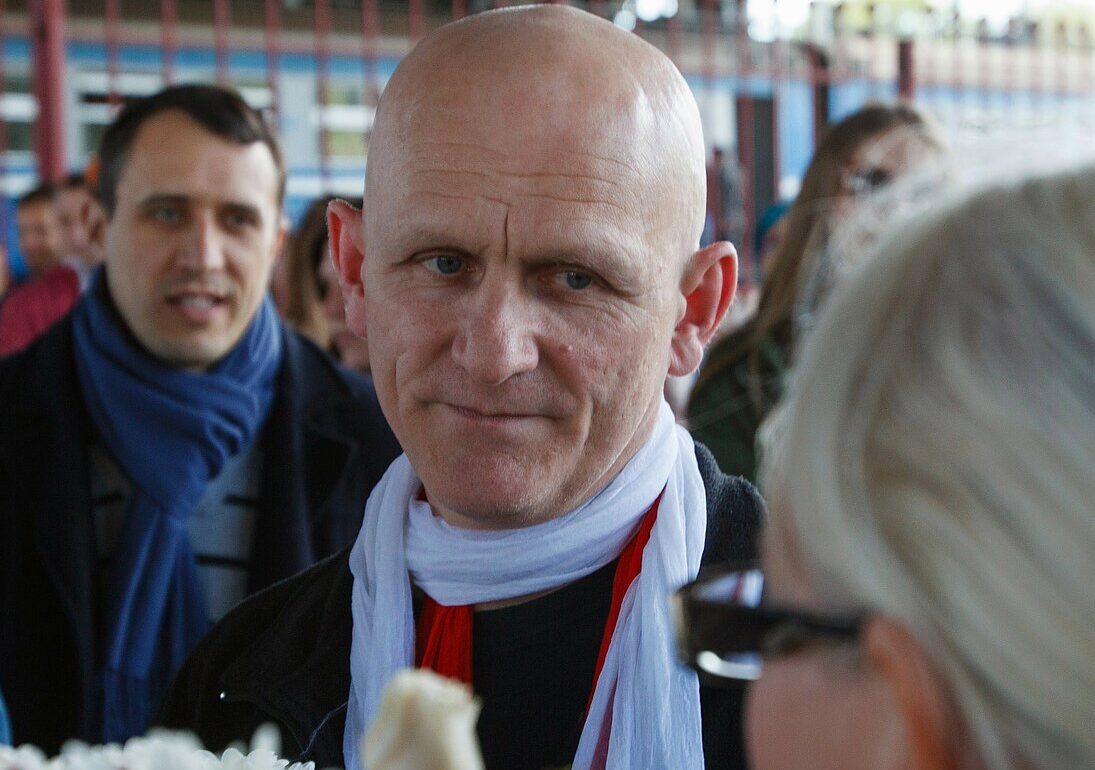A Belarusian court on Friday sentenced pro-democracy activist Ales Bialiatski, co-winner of the 2022 Nobel Peace Prize and a leading figure in the democracy movement in this former Soviet republic, to 10 years in prison, his human rights organization reported.
The NGO Viasna (“spring”) specified that two other activists tried together with Bialiatski, Valentin Stefanovitch and Vladimir Labkovitch, received sentences of nine and seven years in prison, respectively.
All three were jailed following historic demonstrations against the controversial 2020 re-election of Belarusian dictator Alexander Lukashenko to a sixth term.
A fourth defendant, Dmitri Soloviev, tried in absentia after having fled to Poland, was sentenced to eight years in prison. All were also sentenced to pay a fine of about $70,000.
Bialiatski, 60, founder of Viasna, and the other activists were accused of financing “activities that seriously violate public order,” according to the NGO.
Bialiatski, arrested in July 2021, was awarded the following year with Nobel Peace Prize for his defense of human rights, along with the Russian organization Memorial and the Ukrainian Center for Civil Liberties.
This activist founded and directed for several years Viasna, the main human rights group in this authoritarian country, led since 1994 by the inflexible Lukashenko.
During the 2020 demonstrations, the NGO played a key role in documenting the repressive measures and arrests of protesters.
“Shameful injustice”
Belarusian opposition leader Svetlana Tijanóvskaya called the sentence a “shameful injustice”.
“We must do everything possible to fight against this shameful injustice,” Tijanóvskaya declared on Twitter.
German Foreign Minister Annalena Baebock called the trial a “farce” and noted that they were convicted for their “commitment to the rights, dignity and freedom of people in Belarus.”
And Poland’s prime minister called the sentence “shocking.”
During the trial, the three activists claimed their innocence.
Bialiatski already spent almost three years in prison in Belarus between 2011 and 2014 after being convicted in another case denounced as political.
As of March 1, Belarus held 1,461 political prisoners, according to Viasna.
Western countries have passed several sanctions packages against Belarus for its crackdown on the 2020 protests, but the regime continues to enjoy Russia’s unwavering support.
In return, Belarus agreed to serve as a rear base for Russian troops in the conflict in Ukraine. But so far the Belarusian army has not been directly involved in the fighting.
Cascade of judgments
In addition to the trial against Bialiatski, there are others open against activists of the democracy movement in Belarus.
Svetlana Tijanóvskaya, a prominent opposition figure living in exile, and several of her collaborators are currently on trial in absentia.
Several imprisoned journalists from the Tut.by website, the main independent media outlet in Belarus, are also on trial.
In the fall a series of accusations such as tax evasion and incitement to hatred. In 2021, the web was considered “extremist”.
In February, journalist and activist Andrzej Poczobut were sentenced to eight years in prison.
The trial of the three founders of the opposition media outlet Nexta, which played a significant role in the 2020 protests, also began in mid-February.
Two of them are being tried in absentia; the third, Roman Protassevich, was forcibly returned to Belarus in May 2021.





